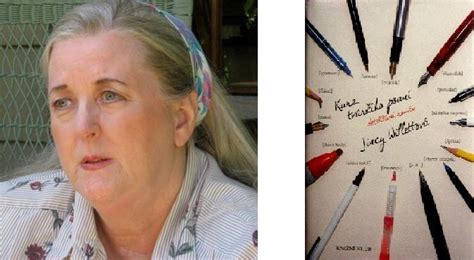A Quote by Richard Bach
If you will practice being fictional for a while, you will understand that fictional characters are sometimes more real than people with bodies and heartbeats.
Quote Topics
Related Quotes
When you're training as an actor, a lot of the big work you're learning is to treat fictional characters like real people. You don't have the problem of discovering a backstory with real people, but there's always a mystery which is common to both fictional and factual characters. They are never quite the person you think they are.
Reading was not an escape for her, any more than it is for me. It was an aspect of direct experience. She distinguished, of course, between the fictional world and the real one, in which she had to prepare dinners and so on. Still, for us, the fictional world was an extension of the real, and in no way a substitute for it, or refuge from it. Any more than sleeping is a substitute for waking." (Jincy Willett)
One of the things that makes characters real is details. Life offers a lot of details. You just have to choose and use them wisely. When you give them to fictional people and a fictional story, their purpose and their meaning changes, so it's best to see the version in the book as fiction entirely, wherever it started out.
With fiction, you are creating an imaginary world. And it can be a very mechanical process. In a fictional film, you create the characters who become "real people" when facing the camera. When you stop shooting, they change their costumes and become someone else. And people tend to believe in documentary more than fiction. Even if the fiction is based on a true story, everybody will say, "Oh, they're only actors."






































